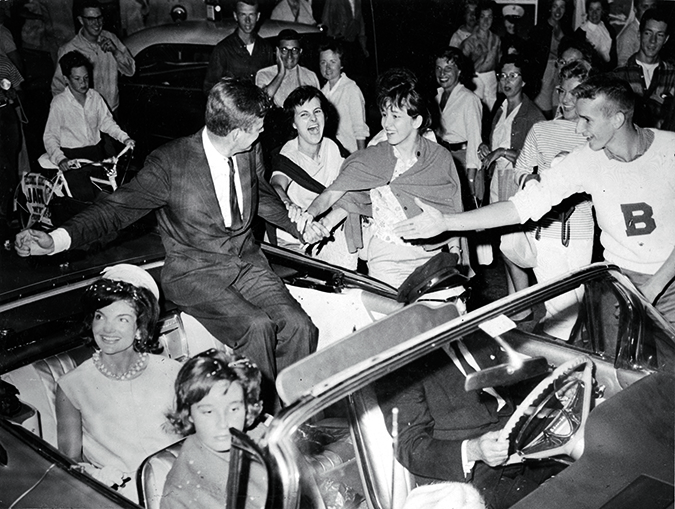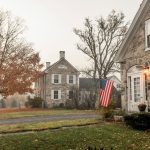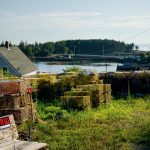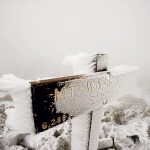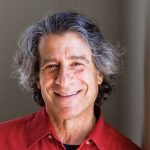Fifty years after the death of President John F. Kennedy, those who knew him and his extended family in Hyannis Port, Massachusetts, reflect on a time when Camelot was their neighbor.
Jack Kennedy always considered himself a Cape Codder. Sure, some year-round residents bristled at that idea, but the truth is that for more than 30 years he spent all or parts of his summers at his family’s six-acre compound in Hyannis Port, a cozy enclave of big homes and Pennsylvania steel money that took coolly to the Kennedys upon their arrival in 1926. There, the future president learned to play golf, played football with his brothers on his dad’s big oceanside lawn, and swam and sailed the waters of Nantucket Sound.
He was a local boy who did local things. He walked to the News Shop in Hyannis Port to get his paper, picked up a new pair of Park Lane shoes at the Puritan Cape Cod clothing store in Hyannis, attended mass at St. Francis Xavier Church. As a teenager, he went to weekly dances, and in 1953 celebrated his engagement to Jacqueline Bouvier at the Hyannis Club. Even as his national stature grew, and then his personal life became complicated by the presidency, Hyannis Port remained central to his life. “I always come back to the Cape and walk the beach when I have a tough decision to make,” he once said. “The Cape is the one place I can think and be alone.”
It’s where he came in October 1959 and decided, with his brother, Bobby, to run for president. It’s where, a little more than a year later, he hunkered down with his family to await the election results, then gave his first speech as president-elect at Hyannis’s National Guard Armory. During the three summers of his presidency, Hyannis Port became his “Summer White House,” a weekend retreat where he welcomed international dignitaries and met with Cabinet members on his presidential yacht, the
Honey Fitz.
But the Cape did more than just shape Kennedy’s summers. They shaped his image. Without Hyannis Port, there is no Camelot. There are no iconic pictures of Jack and Jackie out on the water, no breezy images of a doting father and uncle parading around on a golf cart stuffed with kids. Kennedy may have given the Hyannis area national prestige, but the region also offered him something that no PR campaign could ever manufacture.
Fifty years after his assassination, Kennedy’s ties to the Cape are far from forgotten. We spoke with current and former residents who remember the era and the excitement and the hassles that came with having the president living so close.
Milton Penn
“He looked good, even better in person.”
Along with his nephews Richard and James Penn, Milton co-owns Puritan Cape Cod, an upscale clothing store in downtown Hyannis.
“The Kennedys came into the store all the time. The kids, like Bobby’s children, would come down with a driver. The challenge would always be figuring who was who so you knew whom to charge it to. There wasn’t a lot of pretense about it.
“I think the local community just let them be, and they appreciated that. Jack, before he became president, came in, too. He looked good, even better in person than on television. And he had a smile and a personality—you could just feel the energy coming from him.
“We admired him. He was a good model for us. We never considered ourselves Camelot—that was all manufactured—but it did put Hyannis on the map. It was already growing, but the Kennedy influence gave us that extra zap.”
Gail Wiley
“I even got my father, who was a strict Republican, to vote for John Kennedy .” James Kelley
A 1965 graduate of Barnstable High School, Wiley now lives in Parker, Colorado.
“My family attended St. Francis Xavier Church, and you’d always see the Kennedys there. One day, maybe a year before he got elected, we were running late and we ended up not being able to sit together. I ended up sitting by myself. I’d just gotten there when this tall man sits down next to me. I remember him looking at me and saying something like,
‘Good morning, how are you?’ and then flashing me this nice smile. Afterwards, my father said, ‘Did you know that was John Kennedy?’ I was just 12 years old, but from that moment on I was madly in love with him.
“I even got my father, who was a strict Republican, to vote for him. After he got nominated at the Democratic Convention, they had a big motorcade for him that came right through downtown Hyannis. We walked down to see it, and as Kennedy came by in his convertible,
my father yelled out,
‘Thataway, Jack!’ And he said it with a little fist pump. And John Kennedy turned around and waved to us. My grandmother, who came from Quebec and didn’t speak any English, was just so excited. She was like me, she loved John Kennedy.”
James Kelley
“I was well aware they were of a different social stratum than I was, but it didn’t seem to bother them and it didn’t bother me.”
For three summers Kelley, who grew up in Hyannis Port, worked as a summer police officer outside the Kennedy Compound. A retired private-school headmaster, he lives in Hyannis.
“Ted Kennedy was my age, and for a time we got to be pretty good friends. I’d watch movies at the Kennedy theater in the basement of their home at night. Mr. Kennedy [Joseph, the patriarch] had been in the film industry and got many films, so his library was about as up to date as you could get. It wasn’t unusual to find 20 or so kids from the neighborhood down there on movie nights. I’d play football at the Compound, and once in a while Ted and I sailed with Jack Kennedy on his boat, the
Victura. He was a wonderful guy, just down to earth. I was well aware they were of a different social stratum than I was, but it didn’t seem to bother them and it didn’t bother me.
“But there came a time when I had to work, and I gradually slipped away from those friendships and experiences. One of the jobs I got was as a summer police officer in Hyannis Port. The place where I was stationed was right on the corner by Jack Kennedy’s house. Tourists would stream into Hyannis Port, and they hoped to see Jacqueline or Jack, and if it didn’t happen, they hoped they could leave with a piece of the fence or a rose from the rose garden. And they weren’t always pleasant to deal with. It got to the point where folks were hanging over the split-rail fence and the rose garden [and] Jackie finally decided to put up a high fence.
“And, of course, the people who lived there were often annoyed, because they were inconvenienced. They couldn’t walk down the middle of the street like they usually did, because some of the tourists were there, honking their horns.”
Linda Hutchenrider
“I thought to God I was gonna die, and I screamed, ‘Peter Lawford!’”
A junior-high-school student in Barnstable whenKennedy was elected president, Hutchenrider is the town’s retired town clerk and still lives there.
“Our school was right down the street from the Armory. So, when they learned he was going to give a speech there, they allowed the whole school to walk down the street and go to it. The band played; we cheerleaders walked in front, cheering our way down the street. It was just so neat.
“When we arrived, we watched the cars pull up, and we saw the Kennedy family get out. Out of this one car came this tanned individual, tall with a white suit on. It was Peter Lawford. And I thought to God I was gonna die, and I screamed,
‘Peter Lawford!’ I was more impressed seeing him because I had seen the Kennedys while growing up.
“When I got home, my mother, who’d been watching this thing on television, said, ‘Did you scream out, “Peter Lawford!”? You must have been on one of those speakers, because I heard you.’ I said, ‘Yeah, it was me.’ I’ve always had a pretty big mouth.”
David Crawford
“The President was pretty good, but Bobby could throw a nice football.”
David Crawford grew up in Barnstable and was a young office worker with John Kennedy’s 1960 presidential campaign. Now a branch manager for an investment firm in Hyannis, Crawford lives in Centerville.
“On Election Day we were standing around on the President’s lawn, and we just started tossing a football around. Teddy, Bobby, and Jack showed up. They were always playing touch football anyway. It was a regular weekend activity. And they all liked to play quarterback.
You aren’t any good, I’m gonna play quarterback now—that kind of thing. The President was pretty good, but Bobby could throw a nice football. We were just playing pitch and catch. It wasn’t long, maybe 20 minutes. Things were happening, and I think they were trying to break some of the tension. It was just kind of quiet; nobody really said anything.
“The President had this little trolley car that he’d drive around in with the kids. It would be this big contingent of kids that was immediately followed by a contingent of Secret Service agents on a golf cart. They’d go to the little news shop in town for some candy, ice cream, some newspapers. It also had its share of Kennedy souvenirs. The President would look at them a little, then just keep going.
“There were crowds wherever he went. He’d fly into Otis [Air Force Base, near Mashpee] and then helicopter in and land on his father’s front lawn. You couldn’t miss the whish of the helicopter. Everyone knew he was coming in. People would be out on the water waiting to see him land, and they’d be lining the beaches. Or they’d be upstairs with their windows open, just watching. Even the Republicans who lived near the Compound would watch him land. They might say they didn’t like Democrats, but they’d be looking out their windows, too, like everybody else.”
Jack Aylmer
“When he got elected I had something to crow about. And I did.”
A former state senator and retired president of the Massachusetts Maritime Academy, Aylmer lives in Centerville.
“My dad owned a taxi company in Hyannis, and all of us kids, my sisters, my brother, myself, had to help out with the driving. I was only 16 at the time—you were supposed to be 21 to have a taxi license—but my father knew the police chief in town and was able to work something out. Dad had a contract with the Kennedy family, and most Friday nights I’d go and pick up John Kennedy; he was a senator then, at Barnstable Municipal Airport. Then I’d drive him back on Sundays. He got to know who I was, was interested in what I was going to do after high school, where I was going to go. And we talked about sports. But never politics. I think he was liberated from the Washington drudgery, and didn’t want to get into it much.
“During the election I shipped out [with] the Merchant Marines. The guys on the boat knew he was my candidate, and they’d always ask, ‘How’s he doing?’ When he got elected, I had something to crow about. And I did.”
Gordon Caldwell
“We’d be going 80mph on these back roads—the FBI, the Secret Service, the press—nobody would stop you.”
Beginning in 1955, Caldwell worked as a photographer for the Cape Cod Times for 39 years. He lives in Hyannis.
“Once he announced he was running for president, I practically spent 80 hours a week covering him. One time I was standing by the gate near the Compound, and this local police officer who’d been hired for the summer stops this guy and says, ‘Say, you can’t go in there.’ The man looks over at me and says, ‘Hey, boy’—and here I am, 40 years old, not exactly a kid—’tell him who I am.’ I said, ‘That’s Lyndon B. Johnson.’ The officer went, ‘Oh, uh, you can go in.’
“I went to every press conference. You’d show up and there’d be crowds of people at the fence who’d been there since 8:00 in the morning, just hoping to catch sight of the President or Jackie. When he flew in from Washington, the Times would have one photographer at his house and then send me to Otis Air Force Base to catch him as he landed. Then we’d convoy back to the Compound. We’d be going 80mph on these back roads—the FBI, the Secret Service, the press—nobody would stop you.
“Even as a Republican, I couldn’t help but like him. We became friendly. On occasion I’d be at the Compound for work, taking pictures on the father’s lawn as Jack and his brothers played football. Then the ball would come your way and the next thing you knew you were in the game. It was a fun era.”
Tom Olsen
“I’d taken pictures of Kennedy, and then when I’d meet a girl I liked, I’d give her a picture of the President.”
Interested in becoming a state trooper, maybe even a Secret Service agent, Olsen took a job as a summer police officer outside the Kennedy Compound in the summer of 1961. The retired bank president lives in Osterville.
“You had to have a special sticker to get into Hyannis Port, and our job was to make sure only those people with those stickers or people on our list of guests made it through. But people would make it past us and we’d have no idea how they did it.
“I remember one time when the President was staying at Squaw Island, and I was told there’s this artist who has this picture and wants to see the First Lady, and whatever you do don’t let him in. He made it by me, he made it by someone else, and made it all the way out to the island before they caught him. I have no idea how he made it.
“Another time, this guy drives up in a convertible. He looked kind of grubby, and he looks up and he says, ‘It’s me, Peter, just coming from Marilyn’s funeral.’ It was Peter Lawford.
“People were always driving up, wanting to know where the Kennedys lived, and a lot of times the Kennedy kids would just be milling about, sipping Cokes. They had no idea.
‘Where are the Kennedy kids?’ You’d be thinking to yourself, ‘There’s a handful of them just running around.’
“When the President would go by, I’d take pictures of him, and then when I’d meet a girl I liked, I’d give her a picture of the President. After he was killed, I found out I had only three or four pictures left. It’s awful. All those pictures I could have had!”
Steve Tellegen
“The President is going to play a round of golf and you can caddy for him.”
Tellegen was a 14-year-old high-school freshman at the time of Kennedy’s election. A native of Hyannis and former manager of the Hyannis Port Club, Tellegen lives in his hometown.
“One afternoon I got a call from my dad. He was over at the Hyannis Club and said, ‘Get over here. The President is going to play a round of golf and you can caddy for him.’ We were members there, and they were looking for somebody to carry the President’s bag, and my dad, who stuck his nose into everything, said, ‘I’ll call my son. He can do it.’ I’d just gotten out of school, and I said something like, ‘Nah, I think I’m playing Wiffle ball today,’ or something. I’m sure my dad just rolled his eyes and thought to himself, ‘My no-good son.’
“During those summers, you were just aware of the Kennedys because it was such a smaller place back then and because there were so many of them. You’d see the security, you’d see all the nephews and all the others. And to be quite honest, they let it be known that this was their playground, and there was good and bad that came with that. They were sort of known for not paying their bills. I had a family relative who had a meat market, and he went to his grave being owed money.
‘Just do this for me, and I’ll pay you someday.’
“And the tourists, if you were walking around anywhere on the street in downtown Hyannis, somebody would stop you and say, ‘Which way to the Kennedy Compound?’ That question got asked so much, they used to print T-shirts:
Kennedy Compound This Way. There used to be an information booth to point people to the Kennedy Compound. You’d be mowing your lawn and people would stop and ask for directions. People would be so annoyed.”
Jo Ann Kelley
“We suddenly had this presidential status.”
Jo Ann Kelley worked summers on the Cape, and her late husband, Chet Kelley, was a radio newsman who covered the Kennedy presidency. She lives in Yarmouth Port.
“I got a summer job at the old Filene’s in West Hyannis. For that time it was very chichi and upscale. There just weren’t a lot of stores on the Cape back then, so the Kennedys all shopped there. This was around the time Jack and Jackie were married, and so we saw quite bit of her. They were just regular people, nobody was really nonplussed by it. And Jackie was pretty quiet and reserved.
“Up until John Kennedy became president, Hyannis was a pretty quiet place, and then—boom!—he was no longer John Kennedy, U.S. Senator, but President of the United States. We suddenly had this presidential status, but we had just one stoplight, no big hotels, the hospital was tiny. Now we had Secret Service all around. The police and fire departments had to build up.
“On the day President Kennedy was killed, my sister called me up, just crying, telling me he’d been shot. That night, a gentleman from across the street who was Jewish and had snuck out in the dark of night from Russia years before, came over to our home. He was devastated. He paced back and forth in our little house for I don’t even know how long, saying over and over again, ‘Not in America. Not in America.’”
Don McKeag
“When I gave them those Kennedy half-dollars, they cried and cried. You’d have thought I’d given them a million dollars.”
A former Hyannis Port resident and longtime friend of the late Senator Edward M. Kennedy, McKeag lives in South Carver.
“In 1974 I was on my honeymoon in Europe. Before I left, a friend of mine had told me that the Italians loved John Kennedy. I had saved all these Kennedy half-dollars, so I threw a bunch into my bag, thinking we might meet some people who would get a kick out of them.
“We were in this little fishing village outside Naples, on the beach. One night we ended up at this party, and when people found out we were Americans, we got invited to all these homes. The first house we go into, there’s a picture of the pope on one wall and John Kennedy on the other. We go to another house, same thing. The next house, it’s the same. So now I remember those half-dollars. I went back to our room and grabbed a handful and brought them back for the wives. I’m telling you, when I gave them those [coins], they cried and cried, and just held them tight. You’d have thought I’d given them a million dollars.
“Years later, my neighbors told me how Rose Kennedy used to walk uphill to the golf course and walk the nine holes. Sometimes she’d play. Every now and then a car with tourists would pull up. They’d say, ‘Mrs. Kennedy, how are you?’ And if she liked them, she’d say, ‘Would you like to see where the President spent his summers as a young man and then as president?’ And she’d take them down to the house and give them a tour. Isn’t that amazing?”
